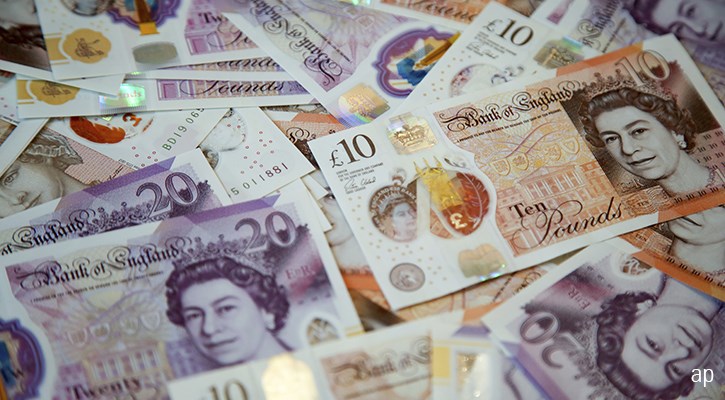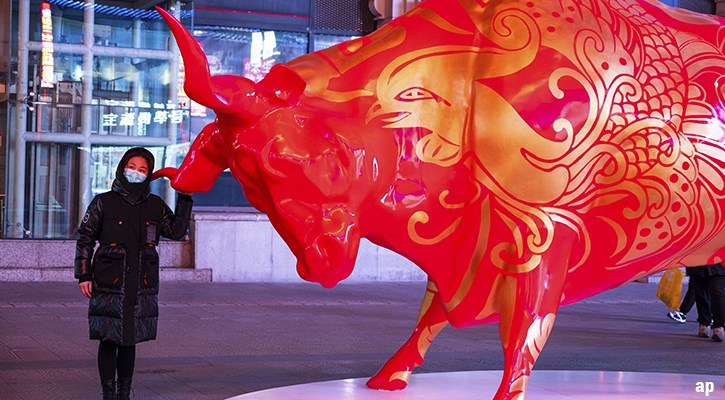
US food and drink giants have been reporting their results this week, so our latest stock of the week poll gave readers a choice between McDonald’s, Starbucks, AB Inbev and Coca-Cola. With a few hours left before the end of the poll, we’re calling it for fizzy drink maker Coca-Cola (KO), which grabbed 70% of the vote.
Coca-Cola is an American brand that epitomises the idea of global dominance. Its vast empire has branched beyond the traditional red-and-white bottle of cola and now includes brands like Sprite, Costa Coffee, Schweppes, Smartwater, Innocent smoothies and Minute Maid juices. Warren Buffett is a fan of both the drink and the stock, of which he owns $22 billion (according to Berkshire Hathaway’s latest SEC filing in August). That represents around 10% of the company’s total market cap. When Buffet first bought the brand's shares in 1988, he said the company could be one of his now-fabled “forever stocks”. At the time, Coke’s share price was around $2. It is now around $56. Morningstar analyst Erin Lash says the shares are still slightly undervalued, with a fair value of $58.
Lash adds this rating is unlikely to change after the company's solid third-quarter results this week. Earnings highlights included a growth in sales volume higher than 2019 levels, for the first time since the pandemic started. There were fears during lockdown that soft drinks firms would struggle with the loss of (higher margin) sales from bars, restaurants and nightclubs. It appears now that people just drunk more of the stuff at home. Reading the latest earnings release from Coca-Cola, “away-from-home” categories are improving as venues re-open across the world, while “at-home” sales remain strong. “We think its strong commercial momentum should ensure this persists,” Lash says.
Inflation and supply chain problems are troubling companies and customers across the world. But Lash says Coca-Cola “maintains a vast arsenal” to withstand these pressures. It can lean on its vast logistics network, and up its marketing spending. It could even raise prices without necessarily affecting sales. Looking ahead to 2022, the company expects the price of raw materials to keep rising.
Coca-Cola Share Price Over Time
Drinks for a Changing World
Let’s look at some wider trends that could take the fizz out of this otherwise upbeat picture.
1) The health and wellness trend, as well as government interventions on sugary food and drinks, makes consumers more likely to go for the sugar-free option. The company had a brief lesson in reputational risk (and the power of celebrity) when shares fell sharply during the Euro 2021 football tournament, when footballer Cristiano Ronaldo hid Coke bottles during a live (and sponsored) press conference.
Coca-Cola is famous for not tinkering with its product line too much, and, though innovations have come and gone since its since its launch in 1892 (remember Coke Tab?), the simplicity of its output has helped it build brand familiarity.
There have been attempts to “healthify” the range over time though. That said, the way certain products have been packaged, branded, and advertised to the public has left the company open to accusations of sexism. Coke Zero is still with us, but the green-canned Coca-Cola Life, a low calorie and sweetener-based drink, was discontinued after five years. As Coke sees it, if health-conscious consumers ditch the 'original' Coke product, they can still buy something else from the range.
“Despite competing in a mature industry, the firm is adequately exposed, either directly or indirectly, to growth vectors such as premium water and energy drinks. Moreover, we believe Coke will be able to continue extracting incremental value growth from the carbonated soft drink (CSD) market,” says Morningstar’s Lash.
2) Plastic pollution is a big issue for ESG investors and consumers and Coca-Cola, as the largest manufacturer of non-alcoholic drinks, is at the vanguard of this challenge. “The company remains committed to being part of the solution to the plastics pollution problem and has made progress, but there is still much more to do,” it said in its latest earnings statement. Independent shareholder advocacy group As You Sow has published a recent report saying Coca-Cola ranks highest among 50 companies for its approach to plastic pollution. The company has just unveiled a protoype of its first 100% plant-based bottle (excluding the cap and the label), and this is planned for commercial use. Morningstar- owned ratings firm Sustainalytics ranks Coca-Cola's overall ESG risk as Medium.
3) Given the firm's market share dominance, you could be forgiven for asking if the world has reached peak Coke. In mainstream markets, there is often a backlash against more established brands, especially among younger consumers, who can tend to prefer nicher, more upscale product offerings. The soft drinks market is expanding every year with new products, some of whom have duboius health claims. While the developed world is awash with the fizzy brown stuff, emerging markets still represent opportunities as incomes rise (in many countries in southeast Asia, for example, Pepsi is the dominant brand).
“Ultimately, Coke’s overarching goal is to put drinks in more hands in more places more quickly than any competitor,” says Erin Lash. Speaking of Coke’s arch rival, Pepsi (PEP) is also awarded a wide economic moat from Morningstar analysts.





























